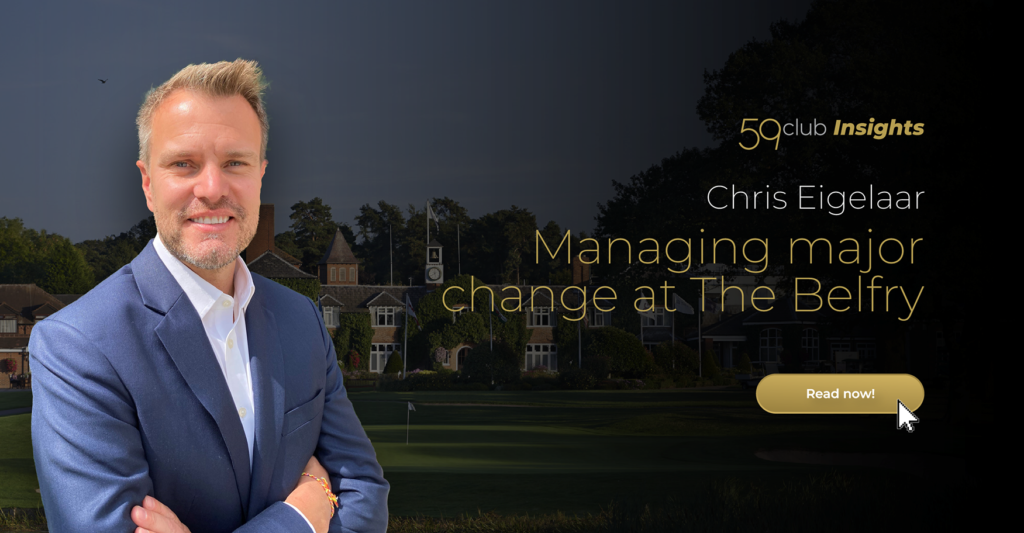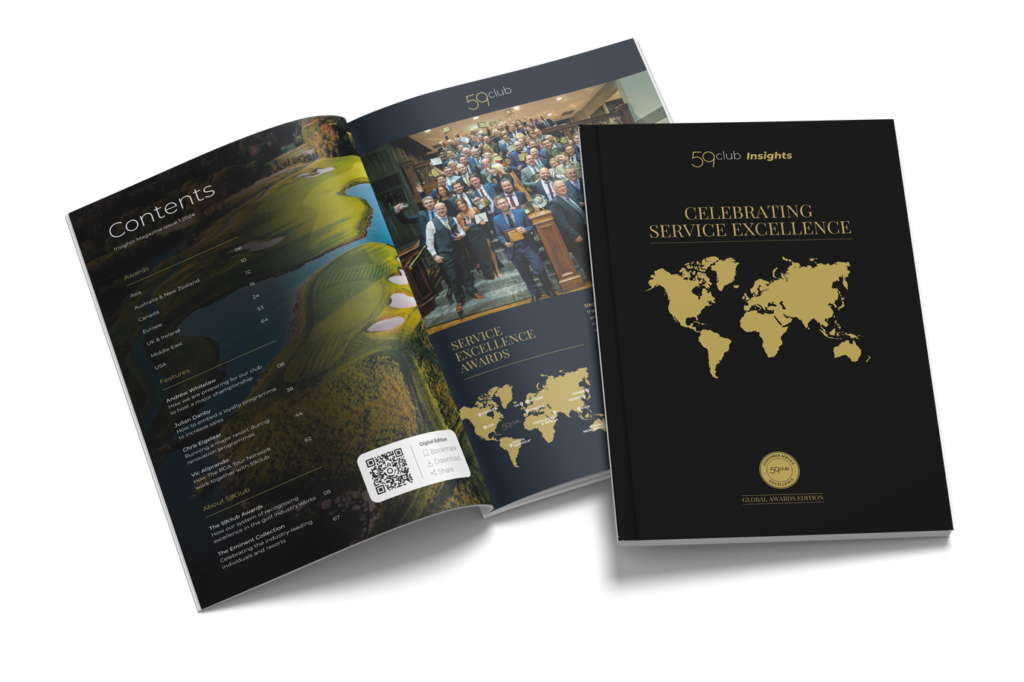Chris Eigelaar is Resort Director at The Belfry Hotel & Resort. He has been in the role since 2020, having previously been General Manager. Home of the world famous Brabazon course, the Warwickshire property is going through a significant upgrade.

What is happening at The Belfry?
The leisure club has just over 3,000 members. There are extensive events and conference facilities and three amazing golf courses, one being the iconic Brabazon. We employ about 800 people. Part of my overall responsibility is overseeing the current development. We’re investing £80 million into building an additional 149 bedrooms, 600-seater conference space and, on a separate site, a leisure club.
It’s about managing the projects plus ensuring the business keeps ticking over and we continue to hit our targets from a guest satisfaction, revenue and, ultimately, client perspective.
What are the challenges of running a largescale business with such work going on?
We started our bedroom refurbishment programme in October last year. We refurbed our main hotel, the bedrooms, our Brabazon Bar corridors in the resort and that was fairly challenging because it was affecting our main hub.
It was all about communication – understanding guest flow and really managing the volume of guests coming in. The project ran from October until March and we’ve got the larger scale project happening – the £80 million investment.
It’s managed by two different contractors, both accessing the resort from two different areas. There is no movement and no crossover in the resort. One thing we said from Day Dot was we want no high-vis jackets walking around the car park for our guests to see. It’s fine if they see on arrival, or departure, but as soon as you’re in the main resort you don’t want to see any high-vis jackets. We’ve been very fortunate that, to date, we’ve had minimal impact from a normal delivery perspective. But it’s entirely up to my management team, and the great communication we have with our clients and with our internal team, to ensure we mitigate as much disruption as we possibly can. It’s not easy. It takes a lot of time and effort, but the real challenge is you need to be consistent in your expectations.
There was that first month of myself, my team, walking around ensuring the contractors understand what we expect and making sure we lay that down as quickly as possible and be consistent in asking the same questions and ensuring they deliver.
How do you embrace the change?
We were very focused on the innovation piece. We were very open to people offering change and accepting change and that’s the journey we took our team on three to six months before this development happened. Throughout, we’ve kept all 800 staff members involved in what is happening, what is coming, having town hall, having briefings, to ensure it’s not just what we do as a leadership group.
It affects everybody in the business and it’s ensuring we listen to them if there are any challenges. You’ll be 30% bigger with the development.
Will that change your position in the market?
Our number one priority is retaining our current clients. We retain 70 per cent of our conference and event business. Before we start understanding our new customer base, it’s about retaining the current and taking them on a journey with us.
We will be able to host larger events – our current large capacity is 280 – so we will be fishing in a different pond because of size and scale. Some of our current corporate partners who have outgrown us, and potentially utilise bigger event spaces, we need to have conversations with them to say, ‘come back to The Belfry’. We are building this for you because you said, ‘we need something bigger’.
The crucial thing for us, from a location perspective, is we know there are opportunities to attract key events in London or Manchester.
It’s not about taking anything away from current venues in the Birmingham and the Midlands area – we are very keen to go and find new business and new events that are not currently visiting the Midlands.
What lessons can you share from the planning process?
We know there are going to be some curveballs, and nothing will go entirely smoothly. It’s an 18-month development programme, which includes six months of refurb as well. It’s two years of a lot of changes happening around the resort. It was all about myself, my management team, being agile and adapting as quickly as we can to any challenges given to us or set by construction or third parties and facing it head on. And then it’s talking about it, sharing frustrations, sharing any challenges with one another, coming together and ensuring we deliver it and improve as a team.


• Featuring over 150 Service Providers
• Global Insights
• Education
• Industry Interviews
• Partner Features
• Meet your Regional Team

